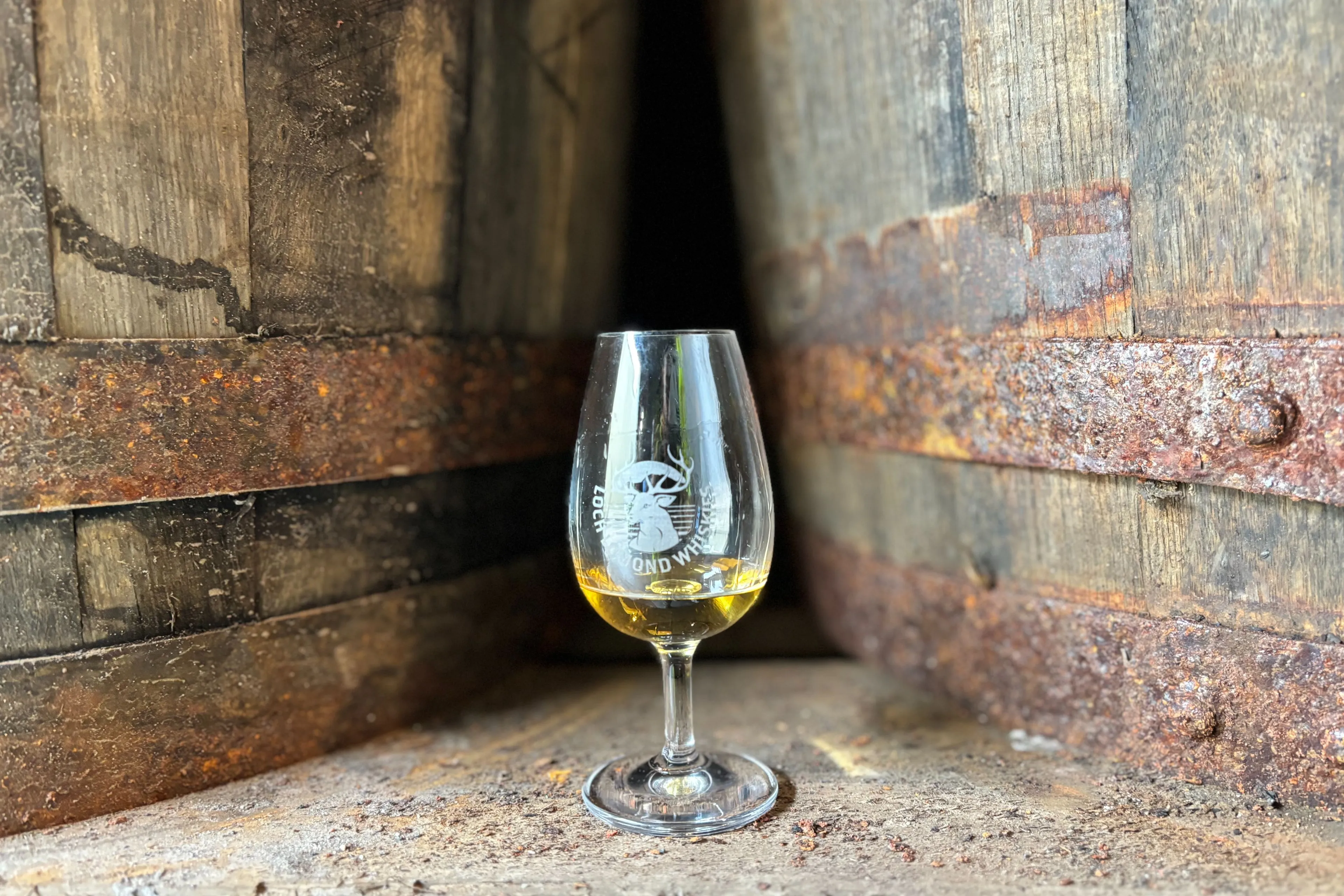
What if you knew exactly where your drink came from, from the field right to your glass? That's precisely what a single estate whisky offers: a whisky that comes from one place from grain to glass. Let us explain what this means in this How to Whisky.
- Where do the raw materials for a single estate whisky come from?
From the distillery's own estate.
- What makes a single estate product unique?
The entire process from cultivation to bottling takes place in one location.
- Why do producers opt for the single estate principle?
For more control over quality, sustainability, and to showcase the character of the region (terroir).
What is a Single Estate distillery?
You may have seen it mentioned on a bottle: single estate whisky or single estate distillery. You can take this term pretty literally: the whisky comes from a single estate.
A single estate whisky is not just any ambrosial drink made by a distillery. The term refers to the entire production process of the whisky, beginning from when the grain, corn or wheat is sown and ending only when the whisky goes into the bottle.
These are the rules for a single estate distillery:
- The distillery grows its own raw materials such as wheat, barley, rye or corn.
- The distillery processes the raw materials itself.
- The distilling of the spirit takes place in the same location.
- The spirit matures in casks on the property.
- The bottling takes place at the distillery.
It's not only important that all this happens on the distillery's own land, but also at the same location. Someone with three own locations in different parts of the country where different parts of the process occur, is therefore not a single estate distillery.
It could therefore be argued that a single estate distillery is by definition a farming business, as agriculture is conducted. A good example of a single estate distillery is the Kilchoman Distillery on Islay.
What makes single estate whisky unique?
A single estate distillery, by controlling the entire process, also holds full control over the whisky making. There are essentially no external factors that could disrupt the process.
Every bottle of single estate whisky can be traced back entirely to the distillery, sometimes even to the harvest year and the field where the ingredients come from. The moment you lift a glass of this whisky to your lips, you can taste the terroir surrounding that distillery.
What are the downsides to single estate whisky?
The downside of a single estate whisky is often the volume. The production of a single estate distillery is entirely dependent on the available raw materials. An estate does not have an infinite area and will not always have something to harvest.
Quite a few factors play a role in the yield. Think of diseases, weather and other problems in agriculture. Therefore, a single estate distillery often has a smaller output of its whisky.
Although some distilleries start as single estate distilleries, they sometimes switch to external ingredients to avoid potential crop diseases and other troubles. This provides a bit more certainty, but the resulting whisky is no longer a single estate whisky.
What single estate distilleries do you know? Let us know in the comments below.
Read also
loading
POPULAR NEWS

Update: The Macallan James Bond Diamonds Are Forever 55th Anniversary Whisky: This is What We Know

The World’s Best Whiskies of 2026: World Whiskies Awards Winners

Whisky Slowdown Reaches Islay as Two Mayor Distilleries Scale Down

Uncle Nearest’s Financial Turmoil is Even Worse Than Everyone Thought

Bold, Peaty and Lush: You Don't Want To Skip The 2026 Ardbeg Committee Whisky

A Fresh Identity: Glenfiddich Introduces Sleek New Packaging

Johnnie Walker Unveils a New Limited Edition and It's Not the Year of the Horse Bottle

Lagavulin Unveils the 11-Year-Old Sweet Peat Whisky: Islay smoke with a mellow, sweet twist

Talisker Magma Spotted: Ultra-Rare Single Malt Distilled in 1978 May Be Coming

Big American Distillery Back in American Hands After More Than 20 Years
LATEST COMMENTS
- There is no distillery equipment there and also no licences to produce or sell alcohol.TRC19-12-2025
- Hi Yvonne, Thank you for your response and for sharing the video. Unfortunately, the evidence you referred to consists only of two people talking about the whisky, without any explanation or identification. We have not spoken to the individuals in the video ourselves, nor can we verify who they are. We describe it as a Chinese whisky because it is released by a Chinese distillery. As you mentioned, the distillery has chosen to label the product as “pure malt” instead of “Chinese whisky.” Based on that, we do not believe they are doing anything illegal.M0nkey16-11-2025
- So - you have the proof......where's your write up?Yvonne16-11-2025
- You are absolutely right. Luckily that doesn't matter for the taste of the whisky. Have you tried it yet?M0nkey05-11-2025
- Guess what? Finland is not part of Scandinavia.Gray105-11-2025
- Throw in the towel? You mean restructure to compete and win in a challenging industry environment.WestwardFounder21-10-2025
- There is nothing legally to prevent the English whisky GI from coming into force, it complies with all the relevant laws and the single malt definition follows the precedent of Welsh whisky and US whiskyChefBear15-10-2025
- Three emails sent (two with videos, linked to a Google Drive Share). 1. The original video. 2. The video with subtitles as it was shared on YouTube 3. Screen grab of the YouTube channel where the video was blocked due to Pernod Ricard lobbying. The story was covered on Drinks Intel at the time - link here - https://drinks-intel.com/subscriber-news/pernod-ricards-the-chuan-pure-malt-whisky-not-sourced-solely-from-china-global-drinks-intel-exclusive/Yvonne10-10-2025
- Hi Yvonne, Thank you for your interesting comment. Could you share your copy with us, so we can adjust our item accordingly? Mail us at [email protected]. Thank you in advance.M0nkey09-10-2025
- Let's keep this factually correct. Pernod Ricard DID NOT release a Chinese whisky. Their first output from The Chuan (the name of the distillery in Sichuan, China) wasn't fit for bottling. What they actually bottled was imported Scotch whisky. This is why the product is called "PURE MALT" and not "Chinese Whisky" - because Pure Malt is not a regulated term - this is not a secret. This was exposed about a week after they released it. There were even videos about their own staff on site admitting it was made from imported whisky - which Pernod Ricard got the lawyers onto to get the video pulled. I've got a copy if you want it.Yvonne09-10-2025
Loading

